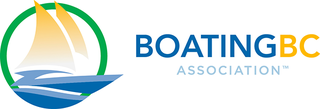
Embarking on a boating adventure for the first time is an exhilarating experience. The sense of freedom, the calming effect of the open water, and the opportunity to explore new horizons are all part of the allure. However, safety should always be the top priority for anyone venturing out on a boat, especially for those who are new to boating. In this article, we will discuss essential safety tips that first-time and new boaters should keep in mind to ensure a safe and enjoyable journey.
1. Get Educated:
Before setting sail, it is crucial to familiarize yourself with the rules and regulations of boating. Take a boating safety course to learn the basics, including navigation, understanding weather conditions, and proper operation of the vessel. These courses provide invaluable knowledge and equip you with the skills to handle different situations while on the water. If you haven't done your course for the Pleasure Craft Operator Card (PCOC), Boating BC has partnered up with MyBoatCard.com to give you 33% your course. Use promo code "BOATBC33" at checkout.
2. Conduct a Safety Check:
Performing a pre-departure safety check is essential to ensure that your boat is in proper working condition. Inspect the hull, engine, navigation lights, and all safety equipment such as life jackets, fire extinguishers, flares, and distress signals. Confirm that the communication devices, such as radios or cell phones, are functioning correctly. Regular maintenance and inspections are vital for safe boating.
3. Know the Weather Forecast:
Before heading out, check the weather forecast for the area where you plan to boat. Sudden storms or high winds can create hazardous conditions. Stay updated throughout your journey and be prepared to alter your plans if the weather deteriorates. Always prioritize your safety and that of your passengers by avoiding rough waters or adverse weather conditions.
4. Wear Life Jackets:
Life jackets save lives. Make sure that everyone on board has a properly fitted and Coast Guard-approved life jacket. Accidents can happen unexpectedly, and wearing life jackets greatly increases the chances of survival in case of a boating mishap. Children and non-swimmers should wear life jackets at all times while on the boat.
5. Maintain a Sober Environment:
Boating under the influence of alcohol or drugs is just as dangerous as driving a car in that state. Impaired judgment, decreased coordination, and slower reaction times can lead to accidents and jeopardize the safety of everyone on board. Designate a sober skipper to operate the vessel and ensure a safe journey for all.
6. Practice Safe Navigation:
Familiarize yourself with the navigation rules and signals to avoid collisions with other boats. Maintain a safe speed appropriate for the water conditions and adhere to no-wake zones. Keep a lookout for swimmers, divers, or other watercraft in your vicinity. Pay attention to navigational markers and buoys, which indicate safe channels and potential hazards.
7. Communicate and File a Float Plan:
Inform someone on land about your boating plans, including your destination, expected return time, and the names of all passengers. This information is crucial in case of an emergency or if you fail to return as scheduled. Maintain reliable communication devices on board and inform your designated contact person if you change your plans.
Final Thoughts:
First-time and new boaters can embark on safe and enjoyable journeys by adhering to these essential safety tips. Remember to stay educated, conduct regular safety checks, be weather-wise, wear life jackets, avoid alcohol and drugs, practice safe navigation, and communicate your plans to a designated person on land. By prioritizing safety, you can fully enjoy the wonders of boating while ensuring the well-being of yourself, your passengers, and other fellow boaters on the water. Happy boating and safe travels!
Resource: Safe Boating Guide.
- Daisy Green likes this.
